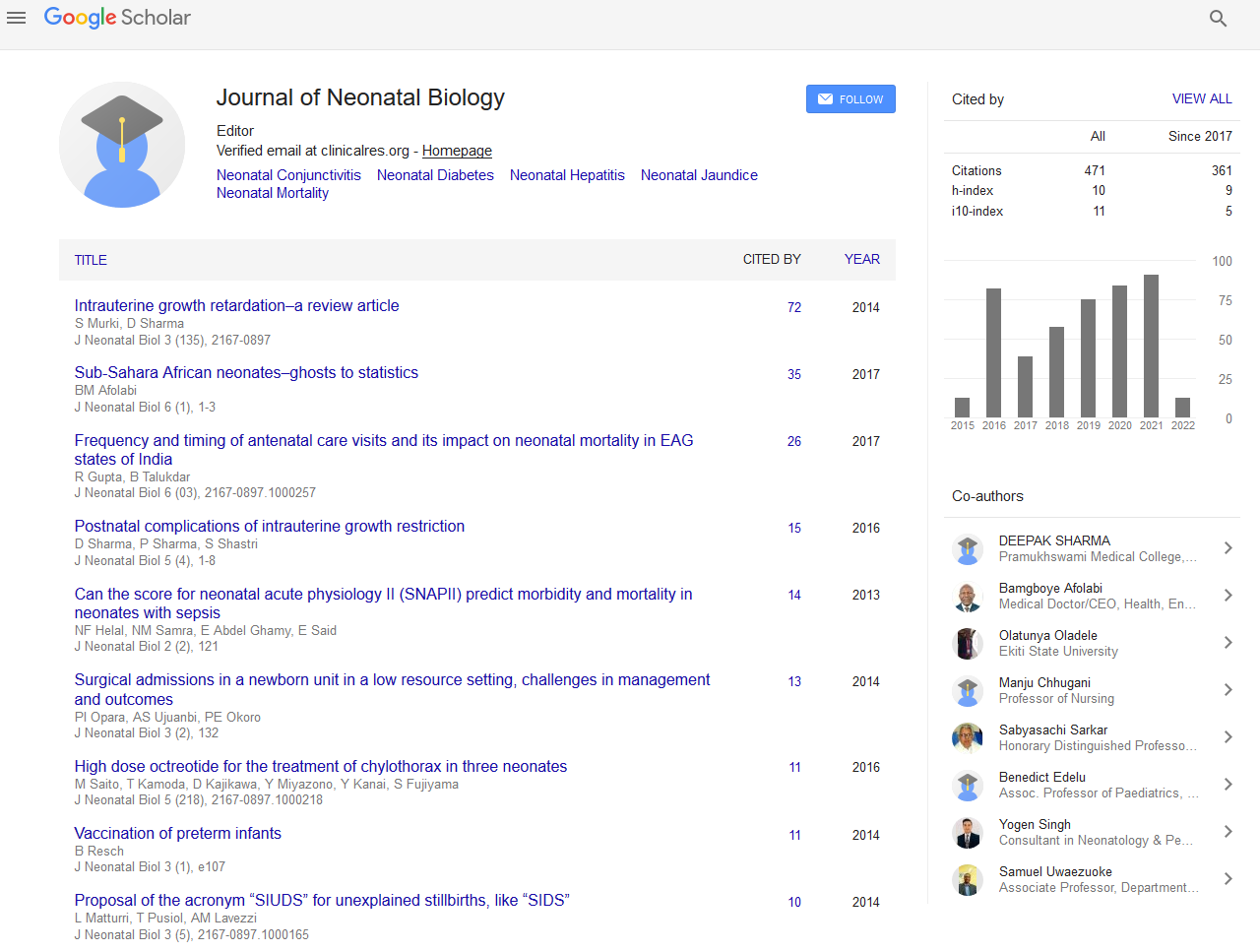PMC/PubMed Indexed Articles
Indexed In
- Genamics JournalSeek
- RefSeek
- Hamdard University
- EBSCO A-Z
- OCLC- WorldCat
- Publons
- Geneva Foundation for Medical Education and Research
- Euro Pub
- Google Scholar
Useful Links
Share This Page
Journal Flyer

Open Access Journals
- Agri and Aquaculture
- Biochemistry
- Bioinformatics & Systems Biology
- Business & Management
- Chemistry
- Clinical Sciences
- Engineering
- Food & Nutrition
- General Science
- Genetics & Molecular Biology
- Immunology & Microbiology
- Medical Sciences
- Neuroscience & Psychology
- Nursing & Health Care
- Pharmaceutical Sciences
Abstract
Risk Factor Analysis and Scoring System for Neurodevelopmental Outcomes after Neonatal Seizures
Background: The aims of this study were to determine prognostic factors and to devise a new scoring system for neurodevelopmental outcomes in infants with neonatal seizures. Methods: A retrospective review of medical records was performed for infants treated for neonatal seizures from March 2010 to December 2015 at the neonatal intensive care unit at Haeundae Paik Hospital. Neurologic outcomes were assessed at the post-conceptional age of 24 months. To assess the risk factors associated with poor neurologic outcomes, various factors including clinical characteristics, EEG findings, and the results from neuroimaging work-ups were analyzed with univariate and multiple logistic regression analyses (SPSS version 18.0). Results: Of the 174 enrolled infants, 57 (32.8%) showed abnormal neurologic outcomes. Seven potential predictors of adverse outcomes, selected by binary logistic regression analysis, were used to devise a scoring system. These included birth weight, time of onset, EEG findings, neuroimaging results, seizure type and severity and etiology. The variables were assigned binary scores with a total arithmetic composite score ranging from 0 to 7. A cutoff score of ≥ 3 provided the greatest sensitivity and specificity. Normalization or persistent normal findings at follow-up EEG within 3 months after seizure on-set were also associated with neurologic outcomes (p<0.05). Conclusion: We propose scoring system uses seven variables to provide early prognostic information on unfavorable neurodevelopmental outcomes in infants with neonatal seizures and reliably predicts long-term neurologic outcomes at the time of seizure onset.


